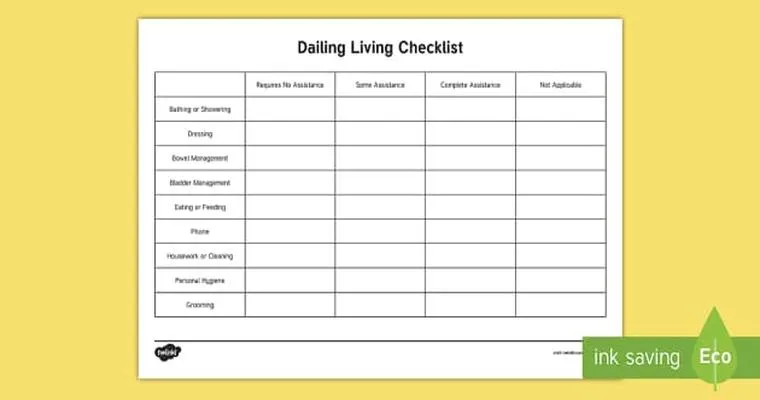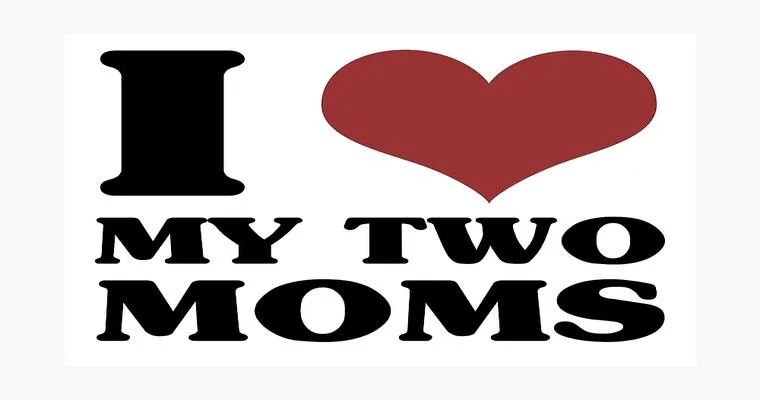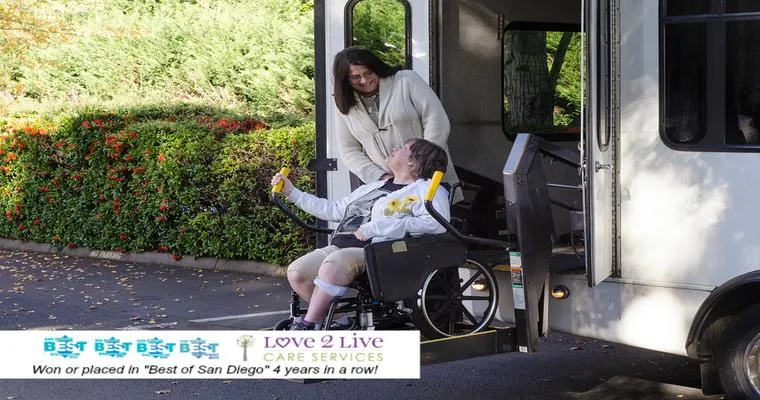Activities of Daily Living, commonly referred to as "ADLs", are essential tasks that individuals perform daily to maintain their health and well-being. These activities include basic functions such as "bathing", "dressing", "eating", and "toileting". Understanding ADLs is crucial for healthcare professionals, caregivers, and individuals seeking to assess their own or a loved one's functional abilities. This article will explore the importance of ADLs, provide useful "checklists", and discuss various "assessments" available to evaluate these essential activities.
What Are Activities of Daily Living?
Activities of Daily Living are divided into two main categories: basic ADLs and instrumental ADLs. Basic ADLs (BADLs) encompass fundamental self-care tasks, while instrumental ADLs (IADLs) involve more complex activities that support independent living. BADLs typically include:
1. "Bathing": The ability to wash oneself, maintaining hygiene.
2. "Dressing": Selecting and putting on appropriate clothing.
3. "Eating": The capability to feed oneself.
4. "Toileting": The ability to use the toilet and manage personal hygiene.
5. "Transferring": Moving from one place to another, such as getting in and out of bed or a chair.
Instrumental ADLs (IADLs) include tasks such as meal preparation, managing finances, medication management, and transportation. These activities are vital for maintaining independence and quality of life, particularly for older adults and individuals with disabilities.
The Importance of Assessing ADLs
Assessing an individual’s ability to perform ADLs is pivotal for several reasons:
"Care Planning": Understanding a person's functional status helps in creating effective care plans tailored to their needs.
"Identifying Risks": An assessment can reveal potential risks for falls or other safety hazards.
"Monitoring Changes": Regular evaluations can track changes in an individual’s abilities over time, helping to adjust care as needed.
"Enhancing Quality of Life": By identifying difficulties in ADLs, caregivers can intervene and provide support to improve the individual's overall well-being.
Checklists for Evaluating ADLs
Creating a checklist is an effective way to evaluate an individual's performance in ADLs. Here’s a simple checklist to guide caregivers or healthcare providers:
Basic ADLs Checklist
Can the individual bathe independently?
Can they dress themselves without assistance?
Are they able to eat without help?
Can they use the toilet independently?
Are they capable of transferring in and out of bed/chair without assistance?
Instrumental ADLs Checklist
Can the individual prepare meals for themselves?
Are they able to manage their medications correctly?
Can they handle their finances and pay bills?
Are they capable of using transportation (public transport or driving)?
Can they perform housework, such as cleaning and laundry?
Assessments for ADLs
Several standardized assessments are available to evaluate ADLs more comprehensively. Some of the commonly used tools include:
"Katz Index of Independence in Activities of Daily Living": This tool assesses basic ADLs and helps determine an individual's level of independence.
"Lawton Instrumental Activities of Daily Living Scale": This assessment focuses on instrumental ADLs and evaluates an individual's ability to live independently in the community.
"Functional Independence Measure (FIM)": This comprehensive assessment tool evaluates both basic and instrumental ADLs, providing a detailed functional profile.
Conclusion
Understanding Activities of Daily Living is essential for promoting independence and ensuring quality care for individuals, especially the elderly and those with disabilities. By using effective "checklists" and assessments, caregivers and healthcare providers can accurately gauge functional abilities, helping to create personalized care plans that enhance overall well-being. Regular evaluations not only identify areas of concern but also support individuals in maintaining their independence and dignity in daily life. Whether you are a caregiver, a healthcare professional, or someone looking to understand their own abilities, familiarizing yourself with ADLs is a vital step toward better health management.





